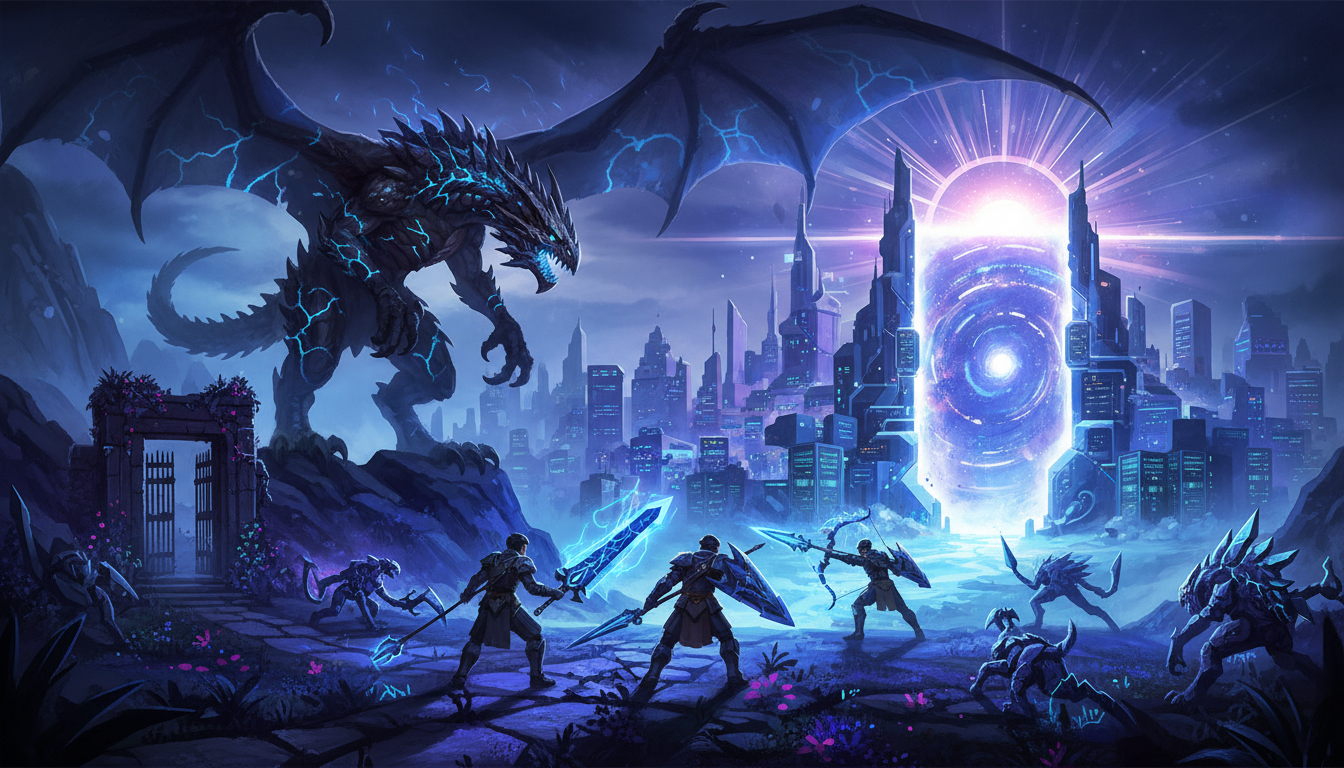Capcom Warns Monster Hunter's Future on PC Lies Beyond Windows 10
2025-10-01

Image credit: AI-generated by Gemini Imagen
In a calculated move that sets a clear deadline for its massive PC player base, Capcom has formally announced that it will no longer guarantee support for its flagship Monster Hunter titles on the Windows 10 operating system after October 14, 2025. The warning, which encompasses the colossal hits Monster Hunter: World, Monster Hunter Rise, and the highly anticipated Monster Hunter Wilds, effectively serves as an official notice for players to begin planning their migration to Windows 11.
This is not a sudden technical glitch or a surprise patch; it is a developer grappling with the unavoidable reality of platform obsolescence. By aligning its support cutoff with Microsoft's own end-of-life date for the aging OS, Capcom is drawing a clear and pragmatic line in the sand. For the millions of hunters still on Windows 10, the clock is now officially ticking.
A Calendar Marked in Stone
The announcement, delivered to the community via a post on the Steam platform, was direct and unambiguous. It targeted the publisher's most critical PC titles, ensuring the message reached the broadest possible audience—from veterans of the New World in World to the Kamura Village faithful in Rise, and even prospective adventurers awaiting the highly anticipated Monster Hunter Wilds.
The company's statement, as cited by Rock Paper Shotgun, leaves no room for interpretation. "Please note that we will not be able to guarantee the compatibility of Monster Hunter: World, Monster Hunter Rise and Monster Hunter Wilds with Windows 10 after October 14, 2025," Capcom stated.
The chosen date is anything but arbitrary. As reported by outlets including GameSpot and GamesIndustry.biz, October 14, 2025, is the exact day Microsoft will officially cease its support for Windows 10. Capcom's decision is a direct consequence of this industry-wide shift, a pre-emptive measure to avoid supporting its live-service games on a platform that will no longer receive official security or stability updates from its creator.
The Ambiguity of 'Guaranteed' Support
While the deadline is firm, the precise consequences for players who do not upgrade remain intentionally vague. Capcom's warning is a carefully worded withdrawal of official support, not a definitive confirmation that the games will cease to function. The publisher followed its initial statement with a crucial clarification, reported by GameSpot: "After this date, we may not be able to provide support for issues that arise from the use of Windows 10."
This distinction is at the heart of the matter. The open question is whether future patches will introduce dependencies on Windows 11-exclusive features that could actively break the games on older systems, or if Capcom is simply absolving itself of the responsibility to test, patch, or provide customer service for a legacy environment. The current information does not differentiate between a game that might break and a developer that will no longer help you if it breaks.
This calculated ambiguity places the onus squarely on the player. For a community built around complex, ever-evolving online ecosystems, the risk of a game-breaking bug or incompatibility issue going unaddressed is a powerful incentive to upgrade.
A Community Bracing for the Inevitable
The reaction from the player base has not been one of anger directed at Capcom, but rather a sense of weary resignation. Based on initial reports, the community has largely met the news with an understanding of the technical realities. The sentiment reflects a general frustration not with the developer, but with the relentless and inevitable march of technology that necessitates such upgrades.
For a dedicated PC gaming audience, the phasing out of older operating systems is a familiar cycle. The announcement has been interpreted less as an ultimatum and more as a public service announcement, giving players ample time to prepare.
In setting this deadline, Capcom has confronted a challenge facing every major developer: how to navigate the delicate process of retiring support for a legacy platform with a vast and active user base. By tying its decision directly to Microsoft's timeline and communicating its intent well in advance, the company is attempting to manage this transition as smoothly as possible. The hunt may continue for now, but its future is clearly being built on a new foundation.